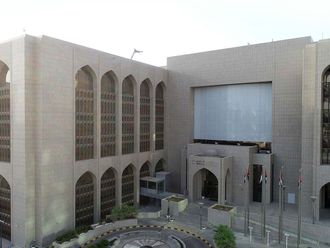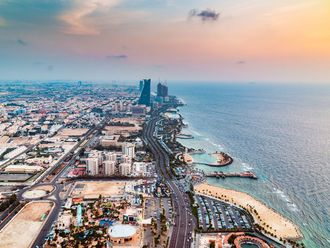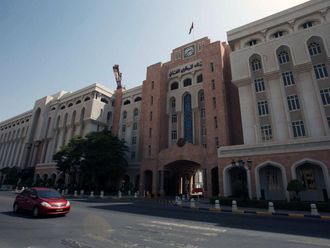Libya and Kuwait deserve the credit for undertaking initiatives to bring Arab economies closer to each other. Two developments taking place in these two countries over a 10-day period promise to strengthen inter-Arab trade.
The first relates to the convening of an extraordinary Arab summit in the Libyan city of Sirte. Ostensibly, the host country found it convenient to call for a gathering of the Arab League's 22 members ahead of the second-ever Arab-Africa summit at the same venue.
For good reasons, the meeting in Libya provided Arab officials an opportunity to review progress of economic integration projects. One ambitious project targets the commencement of a customs union among Arab states in 2010 with completion set for 2015.
Customs union
Ostensibly, the scheme allows for a relatively long period of time in order to provide members ample opportunity to adapt their economies to the requirements of such a customs union.
Among its notable end goals, the project should serve the goal of making Arab states more interdependent in their trading activities. At the moment, inter-Arab trade is limited at best, hovering around 12 per cent of total trade by Arab countries.
Still, a big chunk of this inter-Arab trade takes place between Gulf Cooperation Council (GCC) states. In turn, the statistics partly reflect growing economic integration within the GCC by virtue of implementing a customs union project from 2003. The agreement requires adoption of a common external trade policy with non-members. Also, the GCC started the common market status in 2008, which in turn allows for unrestricted movement of factors of production within the six-nation grouping.
Several factors explain the low level of trading among Arab countries. One of them is geography, requiring dependence on air rather than port logistics. Still, air links among Arab countries are not necessarily frequent or direct. GCC carriers deserve commendment for strengthening air links amongst Arab nations. Reference is made to such airlines as Emirates, Etihad, Air Arabia, Saudi Arabian Airlines, Qatar Airways and Kuwait Airways.
The second notable development for Arab economies is the prospect of realisation of another initiative. Arab finance ministers are tomorrow expected to witness the signing of an agreement for a special fund to promote small enterprise in the Kuwaiti capital.
Special fund
In retrospect, Kuwait proposed setting up the fund while hosting the second Arab Economic, Development and Social summit early last year. During the meeting, Kuwait proposed setting up of a fund to help with a paid-up capital of $1 billion (Dh3.67 billion) and gave the momentum for the plan by donating half of that amount, with other Arab countries contributing the balance. The fund has good causes in mind and has been particularly designed to support and finance small and medium private sector enterprises in Arab countries.
Certainly, launching of the special fund could not be more timely after being proposed in the second half of 2008 with the global financial crisis adding to the difficulties of securing project finance on desirable terms. Yet, it remains to be seen to what extent, if any, the fund would help strengthen trade among Arab countries.
Still, aside from finance requirements, Arab countries need to do away with non-tariff measures such as bureaucracy and unnecessary documentation.
This was the message of private sector investors meeting in Kuwait on the sidelines of the summit last year. Other hurdles relate to imposition of numerous conditions related to the issuing of visas. This is particularly true with regards to GCC states when it comes to issuing visas to Arab nationals. Conversely, many Arab countries do not impose visas on GCC subjects.
Much to its credit, Kuwait is scheduled to host the third Arab-African summit in 2013, further demonstrating concern for promoting economic prospects of fellow countries.
The writer is a Member of Parliament in Bahrain.











